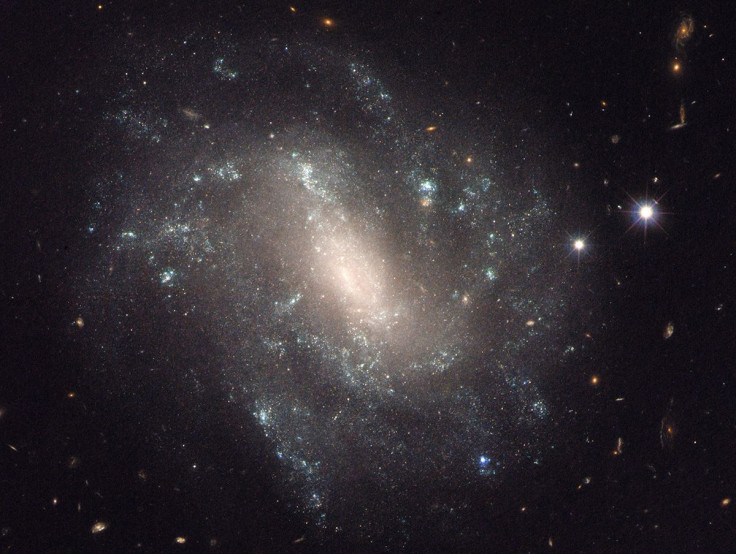Accelerating Expansion Of The Universe Could Be Driven By Energy Of Quantum Vacuum, New Theory Says

Ever since the Big Bang occurred 13.8 billion years ago, one constant feature of the universe’s existence has been its expansion. Not only has the universe been continuously growing in size since its birth, but about 5 billion years ago, the speed at which it is growing also began increasing, or in other words, the expansion of the universe began accelerating.
The phenomenon was discovered by astronomers in 1998, when two separate research teams made the unexpected find using observations of type Ia supernovae. It was unexpected because astronomers had expected the universe’s expansion to be slowing down instead of speeding up. And scientists are still not sure about the exact value of the Hubble Constant — the unit to measure the rate at which the universe is expanding — let alone know why the expansion sped up.
A researcher from the University of British Columbia, Canada, offered a possible answer to that last question in a paper published recently in the journal Physical Review D. In it, Qingdi Wang, a PhD student at UBC, his peer Zhen Zhu and his supervisor William Unruh try to bring together quantum mechanics and Einstein’s theory of general relativity, and put the universe’s accelerating expansion down to the energy of quantum vacuum.
Read: Dsicovery Of Universe’s Expansion Wins Nobel Prize
According to their theory, the universe is made up of space and time that is constantly fluctuating at really tiny scales — “billions and billions times smaller even than an electron,” Wang said in a statement Monday — oscillating between expansion and contraction. The fluctuations almost cancel each other out, but a very small net effect in the favor of expansion makes the universe slowly expand at an accelerating rate.
“Space-time is not as static as it appears, it’s constantly moving,” Wang said.
We don’t feel the fluctuations because of the miniscule scale they happen at.
“It’s similar to the waves we see on the ocean,” Unruh said in the statement. “They are not affected by the intense dance of the individual atoms that make up the water on which those waves ride.”
Read: Reseachers Suggest Universe May Not Be Expanding At All
At the time when the expansion began to become faster, the universe entered an era in which it is dominated by dark energy. A good natural candidate for dark energy is vacuum energy, which is an underlying background energy that permeates all of space throughout the entirety of the universe. This vacuum energy is predicted to be really dense when the theory of quantum mechanics is applied to it, far more than all the energy of all the particles in the universe.
Assuming that to be true, and applying the theory of general relativity, the vacuum energy will have a strong gravitational effect, which physicists think could cause the universe to explode, instead of the slow expansion we are currently going through.
The paper from UBC, titled “How the huge energy of quantum vacuum gravitates to drive the slow accelerating expansion of the Universe,” offers a possible meeting point between the seemingly incompatible approaches of two of physics’ biggest theories.
© Copyright IBTimes 2024. All rights reserved.











